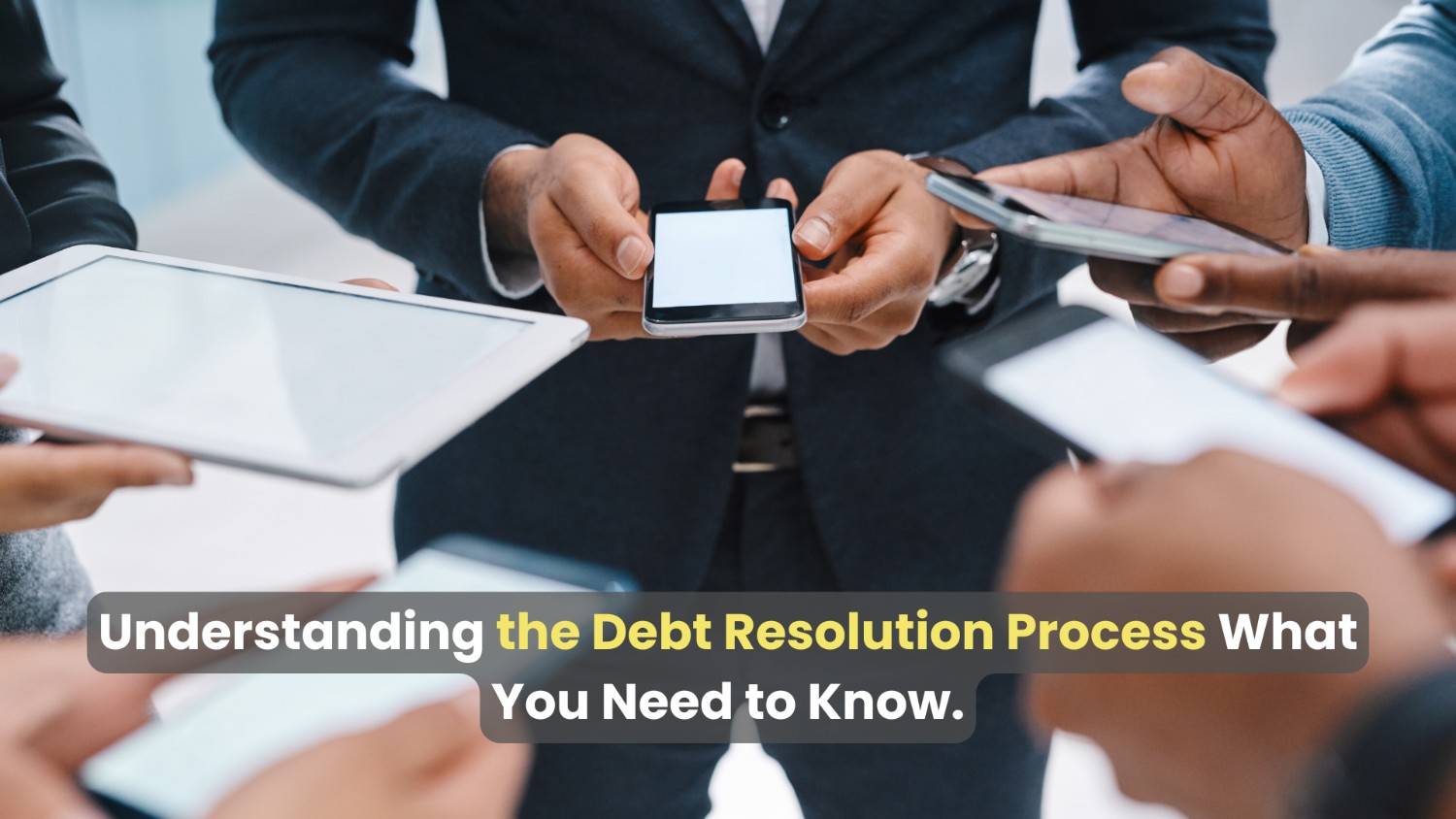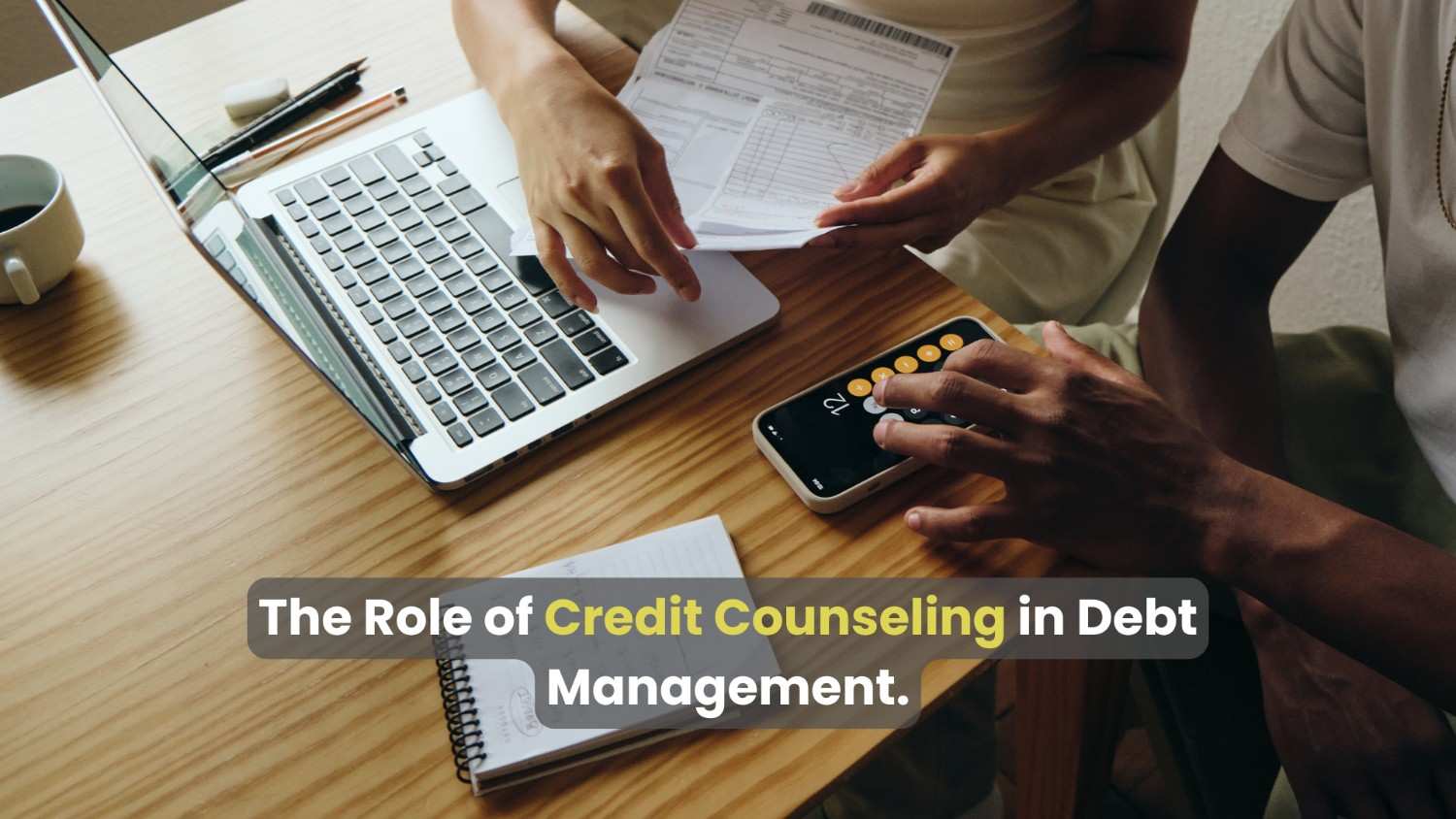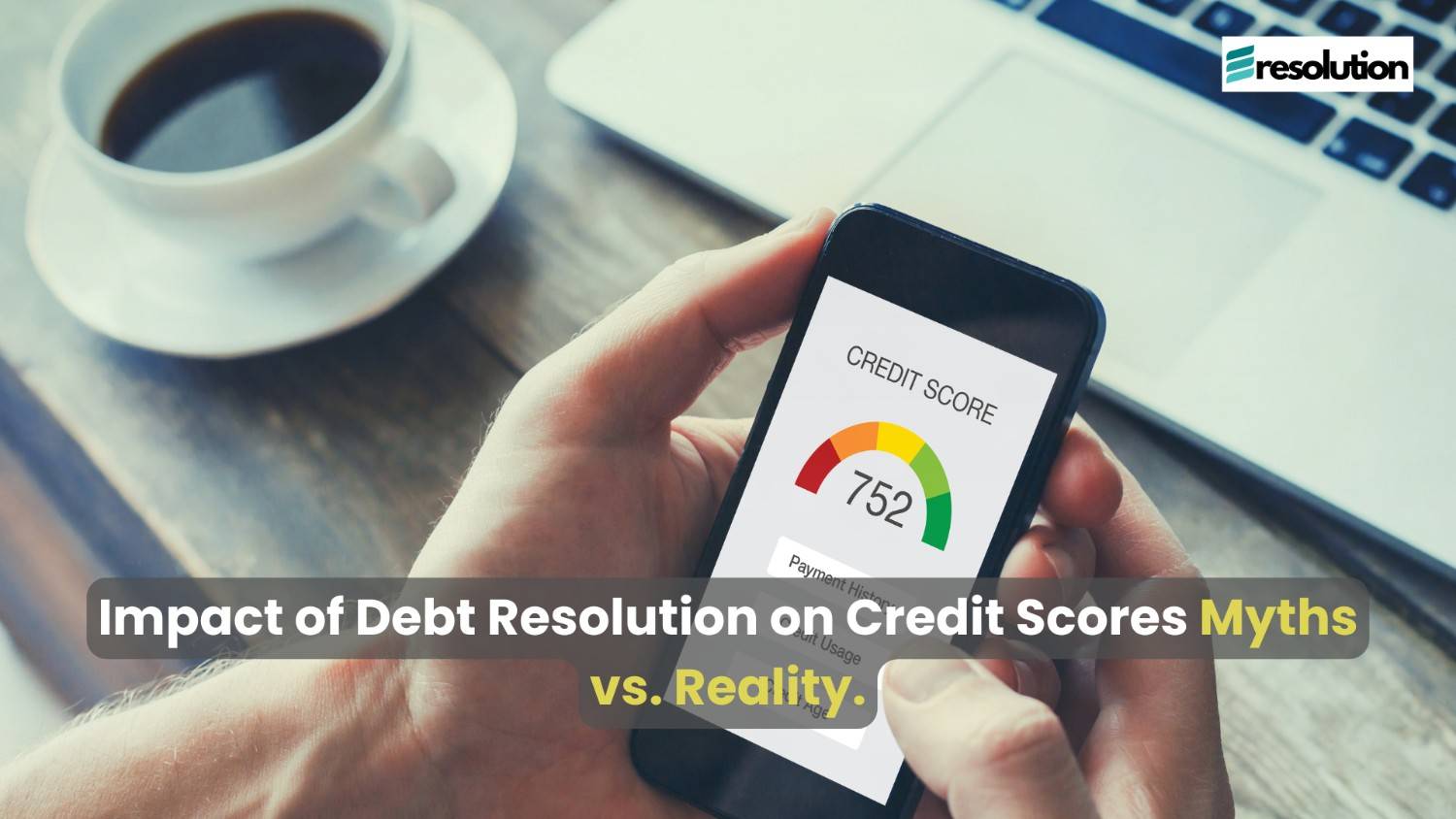· Debt Management · 5 min read
Understanding the Debt Resolution Process: What You Need to Know
Debt resolution offers a structured approach to regain financial stability by negotiating with creditors to adjust repayment terms or reduce total debt. This guide explores the debt resolution process, its benefits, challenges, and legal aspects, helping you understand how it works as an effective solution for managing debt.

Managing debt can become overwhelming if not handled properly, and debt resolution offers a structured way to regain financial stability. This process involves negotiating with creditors to adjust your repayment terms or even reduce the total amount owed. The following sections dive deep into every aspect of debt resolution, helping you understand how it works and why it’s an effective solution.
What is Debt Resolution?
Definition and Purpose
Debt resolution is a financial strategy where an individual or organization negotiates with creditors to settle outstanding debts. This might involve lowering the total debt amount, adjusting interest rates, or extending repayment timelines. The goal is to create a manageable repayment plan that aligns with your current financial situation.
Key Differences Between Debt Resolution and Debt Settlement
Debt resolution focuses on making debt manageable through restructured terms. In contrast, debt settlement often involves negotiating a one-time lump-sum payment that’s less than the total owed. Debt resolution is broader and can be less risky in terms of credit impact.
Common Reasons for Debt Problems
Overborrowing
Borrowing beyond one’s capacity is one of the leading causes of debt. Excessive reliance on credit cards or loans can lead to an unsustainable financial burden.Sudden Financial Setbacks
Unexpected life events, like job loss, health emergencies, or economic downturns, can disrupt financial stability.Poor Money Management
A lack of budgeting, overspending, or failure to prioritize essential payments often leads to debt accumulation.
How the Debt Resolution Process Works
Debt resolution typically follows these steps:
Initial Consultation and Assessment
A debt resolution expert evaluates your financial status, including income, expenses, and outstanding debts.
Evaluation of Financial Standing
The expert prioritizes your debts, focusing on high-interest or time-sensitive obligations first.
Developing a Resolution Plan
A customized plan is created to negotiate terms with creditors. This could involve reducing interest rates, waiving late fees, or creating a feasible repayment schedule.
Types of Debt Covered
Debt resolution can address various types of debt, including:
Credit Card Debt: High-interest unsecured loans can be negotiated to lower payments.
Personal Loans: These loans often have fixed terms but can be renegotiated to suit your current financial capacity.
Business Loans: Debt incurred by businesses, especially small ones, can be restructured to avoid financial collapse.
Benefits of Debt Resolution
Avoiding Bankruptcy
Bankruptcy has severe long-term consequences, including damage to your credit score. Debt resolution offers a more controlled alternative.Reducing Financial Stress
With a clear repayment plan, you can focus on rebuilding your financial health rather than worrying about mounting bills.Improved Financial Planning
Debt resolution often comes with financial advice, helping you learn better money management skills for the future.
Challenges in the Debt Resolution Process
Negotiation Hurdles
Some creditors may resist lowering payments or adjusting terms. Persistence and professional representation are often necessary to overcome this.
Creditor Resistance
Not all creditors are willing to cooperate, which can delay or complicate the process.
Emotional Toll on Individuals
The stress of dealing with debt can take a mental and emotional toll, requiring strong resolve and support.
The Role of Debt Resolution Agencies
Services Offered
Debt resolution agencies handle everything from negotiating with creditors to creating a repayment plan tailored to your financial situation.
How to Choose a Reliable Agency
Look for agencies with proven expertise, transparent pricing, and positive client testimonials. Avoid those that demand upfront fees without guarantees.
Debt Resolution vs. Debt Consolidation
Definitions
Debt Resolution: Negotiates with creditors to reduce the debt or adjust repayment terms.
Debt Consolidation: Combines multiple debts into a single loan, often with a lower interest rate but a longer repayment period.
Pros and Cons of Each
While debt consolidation simplifies payments, it may not reduce the overall debt amount. Debt resolution, on the other hand, targets affordability and may reduce the total debt.
Legal Aspects of Debt Resolution
Laws Governing Debt Resolution in India
The Insolvency and Bankruptcy Code (IBC) has provisions for individuals and businesses to resolve debts without declaring bankruptcy.
Rights of Debtors and Creditors
Debtors have the right to fair negotiations, while creditors have the right to be repaid as per agreed terms.
Tips for a Successful Debt Resolution Journey
Staying Organized
Keep detailed records of all debts, agreements, and correspondence with creditors.Maintaining Transparency
Honesty about your financial condition builds trust and aids in negotiation.Seeking Professional Help
Experts can guide you through legalities and handle complex negotiations with creditors.
Signs You May Need Debt Resolution
Difficulty paying monthly bills.
Frequent collection calls or notices.
Reliance on credit cards for basic expenses.
Common Misconceptions About Debt Resolution
It Ruins Your Credit Score
While it may temporarily affect your score, successful resolution can improve it in the long term.
It’s Only for the Financially Irresponsible
Anyone can face financial difficulties. Debt resolution is a practical solution for managing them.
Post-Debt Resolution: Rebuilding Financial Health
Creating a Budget
A budget ensures you’re living within your means and setting aside money for emergencies.Saving for Emergencies
Aim to save at least three to six months’ worth of expenses as a financial cushion.Monitoring Credit Scores
Regular credit checks help you track your progress and identify areas for improvement.
Conclusion
Debt resolution is a lifeline for those struggling with overwhelming financial obligations. It’s not just about paying off debt it’s about reclaiming control over your finances and planning for a brighter future. The sooner you take action, the more options you have to resolve your debts effectively.
FAQs
What is the average timeline for debt resolution?
It varies but typically takes between 3 to 36 months.How does debt resolution affect my credit score?
Initially, it may dip slightly, but over time, as debts are resolved, your score improves.Can I negotiate directly with creditors?
Yes, but working with professionals often yields better outcomes.Are debt resolution services expensive?
Fees depend on the agency, but many offer affordable plans with clear benefits.Is debt resolution the same as bankruptcy?
No, debt resolution focuses on negotiation, while bankruptcy is a legal declaration of insolvency.



